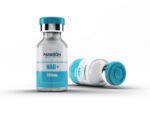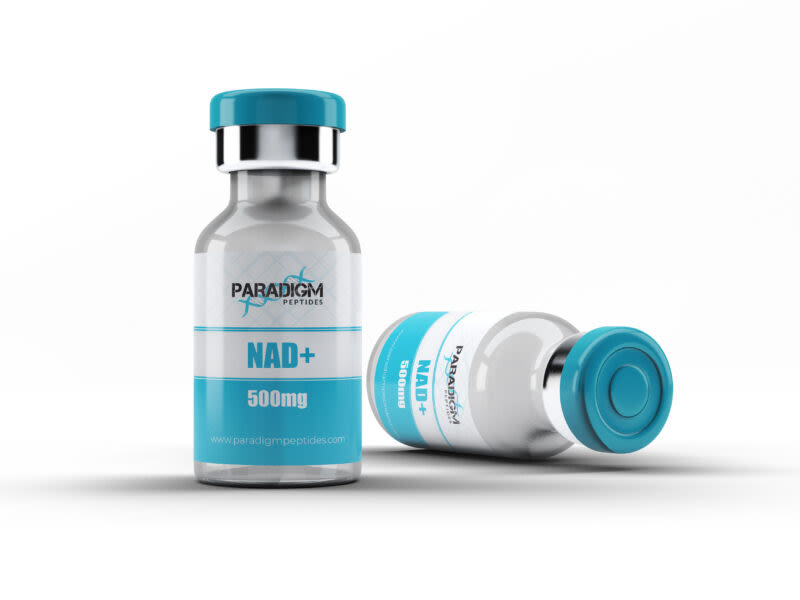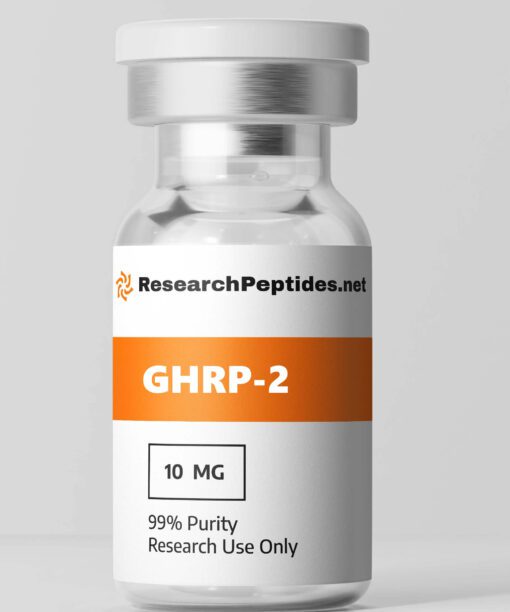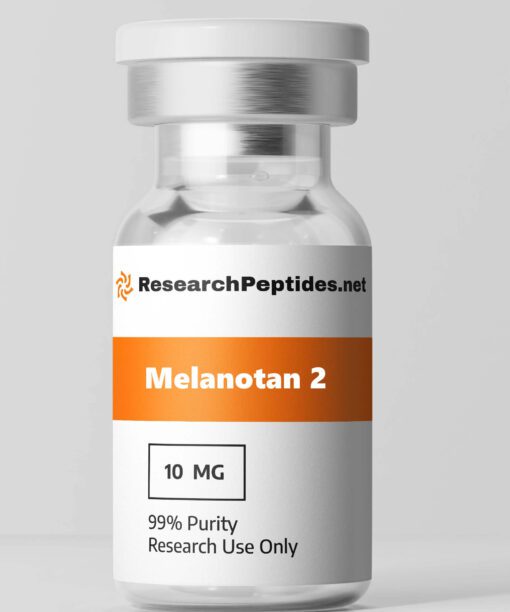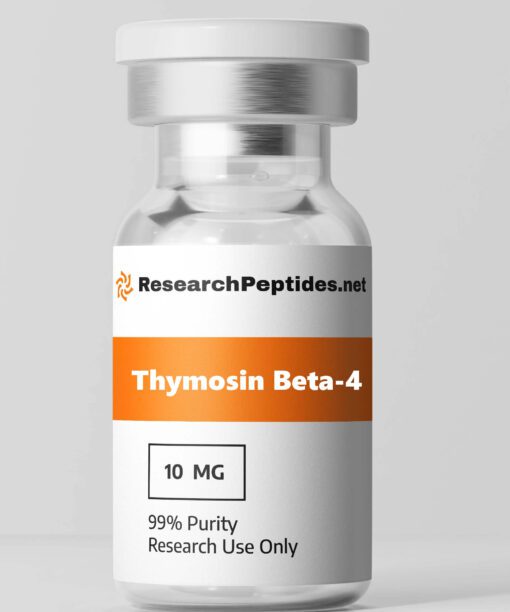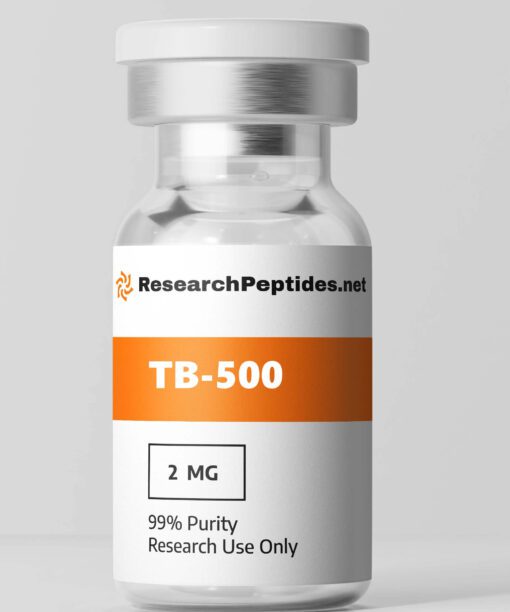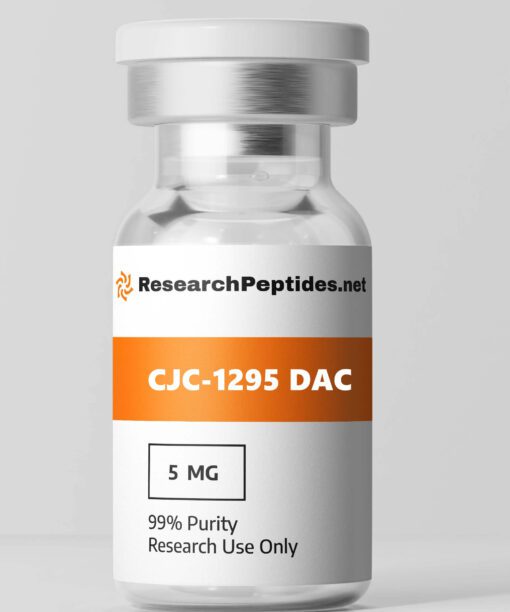NAD+NAD+ Paradigm Peptides for Sale
Unlocking the Potential of NAD+ Paradigm Peptides: A Promising Breakthrough in Anti-Aging and Disease Treatment
Introducing NAD+ Paradigm Peptides – the groundbreaking research product that has shown promising results in enhancing cellular health and longevity. Backed by extensive studies, these peptides have demonstrated their potential to support vital processes within the body, offering a new paradigm in optimizing overall well-being.
1. What is NAD+ Paradigm Peptides?
NAD+ Paradigm Peptides is a research compound that belongs to the class of peptides known as nicotinamide adenine dinucleotide (NAD+) analogues. NAD+ is a coenzyme found in all living cells and plays a crucial role in cellular energy production. It serves as a key component in metabolic reactions, including glycolysis, the Krebs cycle, and oxidative phosphorylation.
NAD+ acts as an electron carrier, shuttling electrons between different enzymes involved in these processes. The structure of NAD+ Paradigm Peptides closely resembles that of NAD+, allowing it to interact with cellular receptors and modulate various biological processes.
This peptide has been studied for its potential benefits in enhancing mitochondrial function, promoting energy metabolism, and improving overall cellular health. Research on NAD+ Paradigm Peptides has shown promising results in non-human models, suggesting its potential applications in areas such as aging, neurodegenerative diseases, and metabolic disorders.
However, further studies are needed to fully understand its mechanisms of action and evaluate its safety and efficacy in human subjects.
2. How Does NAD+ Paradigm Peptides Work?
NAD+ Paradigm Peptides works by interacting with cellular receptors involved in energy metabolism and mitochondrial function. When administered, this peptide binds to specific receptors on the cell membrane, triggering intracellular signaling pathways that promote the synthesis of ATP (adenosine triphosphate), the primary source of energy for cells.
One of the key mechanisms through which NAD+ Paradigm Peptides enhances cellular energy production is by increasing the activity of enzymes involved in glycolysis and oxidative phosphorylation. By activating these enzymes, the peptide facilitates efficient conversion of glucose into ATP within the mitochondria.
Furthermore, NAD+ Paradigm Peptides has been shown to stimulate the production of NAD+ in cells. This increase in cellular NAD+ levels can have numerous beneficial effects, including improved mitochondrial function, enhanced DNA repair mechanisms, and increased sirtuin activity, which is involved in regulating various cellular processes.
Overall, NAD+ Paradigm Peptides acts as a potent modulator of cellular energy metabolism and has the potential to improve overall cellular health and function.
3. NAD+ Paradigm Peptides Benefits
The benefits of NAD+ Paradigm Peptides have been observed in non-human research studies and show potential for various applications. Some of the notable benefits include:
1. Improved cognitive function: NAD+ Paradigm Peptides has been shown to enhance cognitive performance and memory in non-human models. It may support neuronal health and protect against age-related cognitive decline.
2. Increased endurance: Research suggests that NAD+ Paradigm Peptides can enhance endurance and physical performance by improving mitochondrial function and promoting efficient energy production.
3. Enhanced immune response: Studies have demonstrated that NAD+ Paradigm Peptides can boost immune cell function, leading to a more robust immune response. This peptide may help strengthen the body’s defense against pathogens and promote overall immune system health.
4. Anti-aging effects: NAD+ is closely associated with aging processes, and NAD+ Paradigm Peptides may offer anti-aging benefits by promoting DNA repair mechanisms, reducing oxidative stress, and improving mitochondrial function.
It is important to note that these benefits have primarily been observed in non-human studies, and further research is needed to validate their efficacy in human subjects. Additionally, individual results may vary depending on factors such as dosage, administration method, and specific research objectives.
4. NAD+ Paradigm Peptides Side Effects
NAD+ Paradigm Peptides are a promising area of research, but like any other substance, they may have potential side effects. It is important to understand and consider these side effects before incorporating NAD+ Paradigm Peptides into your research. Some of the known side effects include:
1. Allergic Reactions:
Some individuals may experience allergic reactions to NAD+ Paradigm Peptides. These reactions can range from mild skin irritation to severe anaphylaxis. It is crucial to conduct a patch test before starting any research involving these peptides and consult with a healthcare professional if you have a history of allergies.
2. Digestive Issues:
NAD+ Paradigm Peptides may cause digestive issues such as nausea, diarrhea, or stomach discomfort in some individuals. These symptoms are usually temporary and subside as the body adjusts to the peptides. However, if these symptoms persist or worsen, it is advisable to discontinue use and seek medical advice.
3. Headaches:
Headaches are another reported side effect of NAD+ Paradigm Peptides. These headaches can vary in intensity and duration. If you experience persistent or severe headaches while using these peptides, it is recommended to consult with a healthcare professional for further evaluation.
4. Fatigue:
In some cases, individuals may experience fatigue or lethargy when using NAD+ Paradigm Peptides. This could be due to the body’s adjustment process or individual variations in response. It is important to monitor your energy levels during research and make adjustments as necessary.
Note: It is essential to remember that individual responses to NAD+ Paradigm Peptides may vary, and not everyone will experience these side effects. It is crucial to follow proper research protocols, consult with a healthcare professional, and monitor your body’s response throughout the research process.
5. Advantages of NAD+ Paradigm Peptides
NAD+ Paradigm Peptides offer several advantages in research, making them an exciting area of study. Some of the key advantages include:
1. Enhanced Cellular Function:
NAD+ Paradigm Peptides have been shown to enhance cellular function by increasing NAD+ levels in the body. This can lead to improved energy production, DNA repair, and overall cellular health. These benefits make NAD+ Paradigm Peptides valuable for studying various biological processes.
2. Anti-Aging Properties:
NAD+ Paradigm Peptides have gained attention for their potential anti-aging properties. They are believed to promote longevity by supporting mitochondrial function and reducing oxidative stress. Research in this area may provide insights into age-related diseases and potential interventions.
3. Neuroprotective Effects:
Studies suggest that NAD+ Paradigm Peptides may have neuroprotective effects by improving neuronal health and reducing inflammation in the brain. This makes them promising candidates for researching neurodegenerative disorders like Alzheimer’s disease or Parkinson’s disease.
4. Metabolic Benefits:
NAD+ Paradigm Peptides have been linked to metabolic benefits such as improved glucose regulation, enhanced fat metabolism, and increased insulin sensitivity. Exploring these peptides’ effects on metabolism can contribute to understanding metabolic disorders like diabetes or obesity.
Note: The advantages mentioned above are based on preliminary research findings, and further studies are needed to establish their efficacy and safety. It is important to approach research with NAD+ Paradigm Peptides cautiously and seek guidance from experts in the field.
6. NAD+ Paradigm Peptides Research Topics
NAD+ Paradigm Peptides offer a wide range of research topics that can contribute to our understanding of various biological processes and potential therapeutic applications. Some research topics related to NAD+ Paradigm Peptides include:
1. Mechanisms of Action:
Investigating the mechanisms through which NAD+ Paradigm Peptides exert their effects can provide valuable insights into cellular processes, such as DNA repair, energy metabolism, and mitochondrial function. Understanding these mechanisms is crucial for developing targeted interventions.
2. Age-Related Diseases:
Studying the impact of NAD+ Paradigm Peptides on age-related diseases like Alzheimer’s disease, Parkinson’s disease, or age-related macular degeneration can help uncover potential therapeutic strategies or preventive measures. Exploring the role of these peptides in promoting healthy aging is also an important area of research.
3. Neurodegenerative Disorders:
Focusing on neurodegenerative disorders such as Huntington’s disease or amyotrophic lateral sclerosis (ALS) can provide insights into the neuroprotective effects of NAD+ Paradigm Peptides and their potential as therapeutic agents for these conditions.
4. Metabolic Disorders:
Researching the effects of NAD+ Paradigm Peptides on metabolic disorders like diabetes, obesity, or metabolic syndrome can shed light on their role in regulating glucose metabolism, fat oxidation, and insulin sensitivity.
5. Cellular Senescence:
Exploring how NAD+ Paradigm Peptides influence cellular senescence, the process of aging at the cellular level, can contribute to our understanding of age-related diseases and potential interventions to delay or reverse cellular aging.
7. Future Research Directions for NAD+ Paradigm Peptides
The field of NAD+ Paradigm Peptides research is rapidly evolving, and several exciting future directions can further expand our understanding and applications of these peptides. Some potential future research directions include:
1. Combination Therapies:
Investigating the synergistic effects of combining NAD+ Paradigm Peptides with other compounds or therapies could enhance their therapeutic potential. This could involve exploring combinations with antioxidants, anti-inflammatory agents, or other molecules that target specific pathways.
2. Clinical Trials:
Conducting well-designed clinical trials to evaluate the safety and efficacy of NAD+ Paradigm Peptides in human subjects is an important future direction. These trials can provide valuable data on dosage optimization, long-term effects, and potential applications in various medical conditions.
3. Tissue-Specific Effects:
Further investigating the tissue-specific effects of NAD+ Paradigm Peptides can help tailor their use for specific organs or systems. Understanding how these peptides interact with different tissues can lead to targeted interventions for specific diseases or conditions.
4. Long-Term Safety:
Assessing the long-term safety profile of NAD+ Paradigm Peptides is crucial for their widespread use. Long-term studies can provide insights into potential side effects, tolerance development, and any adverse effects that may arise with prolonged use.
5. Mechanistic Elucidation:
Continuing to unravel the precise mechanisms of action of NAD+ Paradigm Peptides is an ongoing research direction. Understanding how these peptides interact with cellular pathways and molecular targets can facilitate the development of more targeted interventions.
8. NAD+ Paradigm Peptides Before and After in Research
Assessing the before and after effects of NAD+ Paradigm Peptides in research can provide valuable insights into their potential benefits and efficacy. Here are some considerations when evaluating the before and after effects:
1. Biomarkers:
Measuring relevant biomarkers before and after using NAD+ Paradigm Peptides can help assess changes in cellular function, metabolism, or other physiological parameters. This could involve analyzing blood markers, gene expression profiles, or imaging techniques to quantify changes.
2. Functional Assessments:
Evaluating functional outcomes before and after NAD+ Paradigm Peptide administration is crucial for assessing their impact on specific conditions or diseases. This could involve assessing cognitive function, physical performance, or disease-specific measures depending on the research focus.
3. Comparative Analysis:
Comparing data from control groups or placebo-treated individuals with those receiving NAD+ Paradigm Peptides can help determine their specific effects. This comparative analysis allows researchers to differentiate between natural variations and the peptide’s actual impact.
4. Longitudinal Studies:
Conducting longitudinal studies that track individuals over an extended period can provide insights into the sustained effects of NAD+ Paradigm Peptides. This allows researchers to assess any long-term benefits or changes that may occur beyond short-term observations.
Note: It is important to design rigorous research protocols and use appropriate statistical analysis methods when evaluating the before and after effects of NAD+ Paradigm Peptides. Consulting with biostatisticians or research experts can help ensure accurate interpretation of results.
9. NAD+ Paradigm Peptides Cycle for Research
Establishing a proper cycle for using NAD+ Paradigm Peptides in research is essential to optimize their effects and minimize potential risks. Here are some considerations when planning a cycle:
1. Dosage Schedule:
Determining the appropriate dosage schedule for NAD+ Paradigm Peptides depends on various factors, including the specific peptides used, research goals, and individual response. It is advisable to start with lower doses and gradually increase as tolerated.
2. Duration of Cycle:
The duration of a research cycle with NAD+ Paradigm Peptides can vary depending on the study objectives and desired outcomes. Some cycles may last several weeks, while others may extend to months or longer. It is important to align the cycle duration with ethical considerations and participant safety.
3. Rest Periods:
Incorporating rest periods between cycles can help prevent tolerance development or potential side effects associated with prolonged use of NAD+ Paradigm Peptides. These rest periods allow the body to reset and maintain sensitivity to the peptides.
4. Monitoring and Adjustments:
Regularly monitoring the research subjects’ response to NAD+ Paradigm Peptides is crucial during the cycle. This includes assessing biomarkers, functional outcomes, and any reported side effects. Based on these observations, adjustments to dosage or cycle duration may be necessary.
Note: It is important to follow ethical guidelines and regulatory requirements when designing a research cycle involving NAD+ Paradigm Peptides. Consulting with experts in peptide research or clinical trial design can help ensure appropriate protocols are followed.
10. How to Store NAD+ Paradigm Peptides?
Proper storage of NAD+ Paradigm Peptides is essential to maintain their stability and effectiveness. Here are some guidelines for storing these peptides:
1. Temperature:
NAD+ Paradigm Peptides should be stored at a temperature between 2°C and 8°C (36°F and 46°F). This range helps preserve their integrity and prevents degradation. Avoid exposure to extreme temperatures or fluctuations that could compromise the peptides’ quality.
2. Light Exposure:
Avoid exposing NAD+ Paradigm Peptides to direct sunlight or intense artificial light sources. Light can degrade peptides over time, leading to reduced potency or altered properties. Store them in opaque containers or keep them away from light sources.
3. Moisture Control:
Moisture can adversely affect the stability of NAD+ Paradigm Peptides. It is important to store them in dry environments or desiccated containers that prevent moisture absorption. Protecting the peptides from humidity helps maintain their structural integrity.
4. Contamination Prevention:
To prevent contamination, it is advisable to store NAD+ Paradigm Peptides in sterile containers or vials. Ensure proper sealing and avoid unnecessary exposure to air or contaminants during storage. This helps maintain the peptides’ purity and prevents degradation.
Note: Always refer to the specific storage instructions provided by the manufacturer or supplier of NAD+ Paradigm Peptides. Following their guidelines ensures optimal storage conditions and preserves the peptides’ quality for research purposes.
11. NAD+ Paradigm Peptides Dosage for Research
Determining the appropriate dosage of NAD+ Paradigm Peptides for research depends on several factors, including the specific peptides used, research objectives, and individual characteristics. Here are some considerations when determining dosage:
1. Start Low and Gradually Increase:
It is generally recommended to start with a lower dosage of NAD+ Paradigm Peptides and gradually increase as tolerated. This allows researchers to assess individual responses and minimize potential side effects associated with higher doses.
2. Research Goals:
The dosage may vary depending on the specific research goals. For example, if studying cellular function, a lower dose may be sufficient, while investigating therapeutic effects may require higher doses within a safe range.
3. Body Weight and Composition:
Individuals with different body weights or compositions may require adjustments in dosage to achieve optimal effects. It is important to consider factors such as lean body mass, fat percentage, or metabolic rate when determining dosage.
4. Individual Response:
Monitoring individual responses during research is crucial for adjusting dosages if needed. Some individuals may be more sensitive to NAD+ Paradigm Peptides, while others may require higher doses to elicit desired effects.
Note: Consulting with experts in peptide research or pharmacology can provide valuable guidance when determining the appropriate dosage of NAD+ Paradigm Peptides for your specific research objectives. It is important to prioritize participant safety and adhere to ethical guidelines.
12. How to Mix NAD+ Paradigm Peptides for Research?
Mixing NAD+ Paradigm Peptides correctly is essential to ensure accurate dosing and maintain their stability. Here are some general steps to follow when mixing these peptides:
1. Gather Necessary Supplies:
Collect all the necessary supplies, including the peptides, sterile vials, bacteriostatic water or other suitable solvents, alcohol swabs, and syringes. Ensure that all equipment is clean and sterile before use.
2. Calculate Dosage:
Determine the desired dosage of NAD+ Paradigm Peptides based on your research objectives and individual requirements. Accurate measurement is crucial for precise dosing.
13. How to Use NAD+ Paradigm Peptides in Research?
Using NAD+ paradigm peptides in research offers a promising avenue for studying various biological processes and potential therapeutic applications. These peptides, derived from the NAD+ molecule, have shown great potential in enhancing cellular functions, improving mitochondrial health, and promoting longevity. However, it is crucial to understand the proper usage and experimental protocols to maximize the benefits of these peptides in research.
Experimental Design
When incorporating NAD+ paradigm peptides into research studies, it is essential to carefully plan the experimental design. This involves determining the appropriate dosage, treatment duration, and administration method based on the specific objectives of the study. Researchers should consider factors such as cell or animal models, peptide concentration, route of administration (e.g., oral or intravenous), and frequency of dosing.
Dosage Determination
To determine the optimal dosage of NAD+ paradigm peptides for a particular research study, preliminary dose-response experiments can be conducted. Starting with a range of concentrations, researchers can assess cellular or physiological responses to different doses of the peptide. This allows for identifying the dose that elicits the desired effects without causing adverse reactions.
Treatment Duration
The duration of treatment with NAD+ paradigm peptides should be carefully considered to capture both short-term and long-term effects. Depending on the research question at hand, researchers may choose acute treatments for immediate observations or chronic treatments to evaluate sustained benefits over an extended period. It is important to note that prolonged exposure to high doses may lead to diminishing returns or potential side effects.
Administration Method
The choice of administration method depends on several factors such as target tissue or organ accessibility and desired systemic distribution. Intravenous injection is commonly used for systemic delivery while localized administration can be achieved through intramuscular or subcutaneous injections. Oral administration is also an option, although it may require specific formulations to enhance peptide stability and absorption.
Data Collection and Analysis
To assess the effects of NAD+ paradigm peptides in research, various techniques can be employed for data collection and analysis. These include but are not limited to:
– Cellular assays: Researchers can utilize fluorescence-based assays, gene expression analysis, or proteomic profiling to evaluate changes in cellular functions and molecular pathways.
– Animal behavior studies: Behavioral assessments such as cognitive tests, locomotor activity monitoring, or anxiety-related measurements can provide insights into the impact of NAD+ paradigm peptides on neurological functions.
– Metabolic profiling: Techniques like metabolomics can help identify alterations in metabolic pathways induced by NAD+ paradigm peptides.
– Histological analysis: Tissue samples can be analyzed using staining techniques to examine structural changes or cellular markers associated with peptide treatment.
14. Best NAD+ Paradigm Peptides Results in Research
Improved Mitochondrial Function
Research studies have consistently demonstrated that NAD+ paradigm peptides contribute to improved mitochondrial function. These peptides enhance mitochondrial biogenesis, increase ATP production, and promote efficient energy metabolism.
By targeting key regulators involved in mitochondrial health, such as SIRT1 and PGC-1α, these peptides have shown promising results in enhancing cellular energy production and overall metabolic function.
Enhanced DNA Repair Mechanisms
NAD+ paradigm peptides have been found to stimulate DNA repair mechanisms within cells. They activate enzymes like PARP-1 (Poly ADP-Ribose Polymerase 1), which plays a crucial role in repairing DNA damage caused by oxidative stress or genotoxic agents.
By promoting DNA repair processes, these peptides help maintain genomic stability and reduce the risk of age-related diseases associated with DNA damage.
Anti-Inflammatory Effects
Inflammation is a common underlying factor in various age-related diseases. NAD+ paradigm peptides have shown anti-inflammatory properties by modulating inflammatory signaling pathways and reducing the production of pro-inflammatory molecules.
These peptides inhibit NF-κB activation, a key regulator of inflammation, and promote the expression of anti-inflammatory factors. This anti-inflammatory effect contributes to the overall improvement in tissue homeostasis and health.
Longevity Promotion
One of the most intriguing aspects of NAD+ paradigm peptides is their potential to extend lifespan. Studies conducted on model organisms such as yeast, worms, flies, and mice have consistently shown that these peptides can increase lifespan and improve healthspan. By activating longevity-associated genes like SIRT1 and AMPK, NAD+ paradigm peptides enhance cellular stress resistance, delay age-related decline, and promote longevity.
15. Where to Buy NAD+ Paradigm Peptides?
If you are interested in purchasing NAD+ paradigm peptides for your research needs, it is important to ensure reliable sources that provide high-quality products. Several reputable suppliers offer NAD+ paradigm peptides specifically designed for research purposes. These suppliers adhere to strict quality control measures to ensure purity, potency, and consistency of their products. When searching for a supplier, consider the following factors:
1. Reputation: Look for suppliers with a good reputation within the scientific community. Seek recommendations from colleagues or consult online forums dedicated to peptide research.
2. Quality Assurance: Ensure that the supplier follows stringent quality control processes throughout manufacturing and packaging to guarantee product integrity.
3. Certifications: Check if the supplier has relevant certifications or accreditations that demonstrate compliance with industry standards.
4. Customer Reviews: Read customer reviews or testimonials to gauge satisfaction levels with both product quality and customer service.
5. Price and Shipping: Compare prices among different suppliers while considering shipping options and delivery times to choose the most convenient option for your research needs.
Remember, it is essential to verify the legal and regulatory requirements related to purchasing peptides in your country or region before making a purchase.
Based on extensive studies, NAD+ Paradigm Peptides have demonstrated remarkable potential in enhancing cellular function and promoting overall well-being. These peptides offer a promising avenue for combating aging-related decline and supporting various physiological processes. With their ability to boost NAD+ levels and activate sirtuins, these peptides hold immense promise for improving longevity and healthspan. The research findings strongly suggest that incorporating NAD+ Paradigm Peptides into our daily routines may unlock a new era of vitality and rejuvenation.
Discover the Power of Peptides: Your Ultimate Resource 2024
The Peptides Store offers a wide array of peptide forms, such as protein chains, peptide mixtures, IGF-1 Proteins, Melanotan proteins, and beauty peptides. Our collection of Bioregulators focuses on the unique approach of natural bioregulation processes in research. A range of Peptide Capsules is available, providing peptide benefits in a structured form. The Peptide Specials offer value on select peptide research products. The Best Peptides section highlights top peptides for research. Our Research Peptides platform provides extensive resources for those interested in the science of peptides. We also offer a variety of Lab Supplies for your research needs. Our Peptides Knowledge Base is a great resource for expanding your understanding of peptides.
Share The NAD+ Paradigm Peptides Product Page
Product Usage: THIS PRODUCT IS INTENDED AS A RESEARCH CHEMICAL ONLY. This designation allows the use of research chemicals strictly for in vitro testing and laboratory experimentation only. All product information available on this website is for educational purposes only. This product has not been approved by the FDA for Human Use. Bodily introduction of any kind into humans or animals is strictly forbidden by law. This product should only be handled by licensed, qualified professionals. This product is not a drug, food, or cosmetic and may not be misbranded, misused or mislabeled as a drug, food or cosmetic.
Estimated Reading Time: 18 min read

